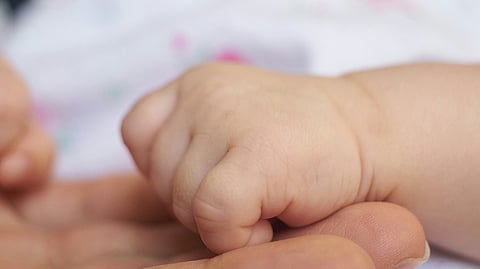Recently, dengue cases have surged across the country, largely due to unhygienic environments and water logging. Dengue, a mosquito-borne viral infection, can be extremely dangerous and even deadly if not treated promptly. One concerning aspect of dengue is its potential transmission from mother to child, a condition known as perinatal dengue.
In Pune, Maharashtra, medical professionals managed to save a baby from the complications of perinatal dengue through a critical emergency Cesarean section and subsequent NICU care. The mother, identified as Avantika Patil (name changed for privacy), began experiencing symptoms of dengue just a week before her expected delivery date. Recognizing the severity of her condition, she sought immediate medical attention. Laboratory tests confirmed the diagnosis of dengue, prompting the medical team to act swiftly.
The mother tested positive for dengue and presented with a low platelet count. Given that the dengue virus and its antibodies can cross the placenta and impact the fetus, an emergency Cesarean section was deemed necessary at 36+5 weeks of gestation. Dr. Siddharth Madabhushi led the procedure, delivering a preterm baby who weighed 2.33 kg. Due to the mother's condition, which included a significantly low platelet count and active dengue infection, the newborn required immediate resuscitation. The baby was quickly transferred to the Neonatal Intensive Care Unit (NICU) for intensive care. The mother had complaints of fever 3 days before delivery.
In the NICU, the baby received oxygen support for two days and was stabilised with hypotension medication and multiple blood transfusions to address bleeding-related complications. The laboratory findings indicated a low platelet count, and the dengue test was positive for both IgG and NS1. The medical team’s prompt and effective intervention led to a notable improvement in the baby’s condition. After eight days of intensive care and treatment, the baby's weight increased to 2.45 kg, and she was deemed stable enough to be discharged.
Follow-up examinations confirmed that both mother and baby were in good health. The newborn was developing appropriately for her age, and the mother's health had stabilized. It is crucial to note that while dengue can be transmitted through breast milk, continued breastfeeding is recommended if the mother is healthy. Breast milk provides essential nutrients that support the newborn's immune system.


